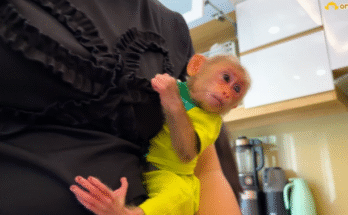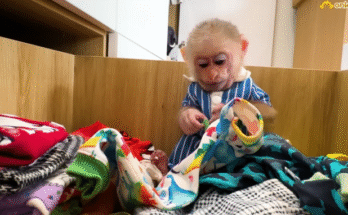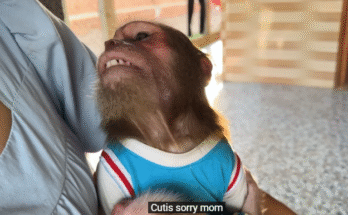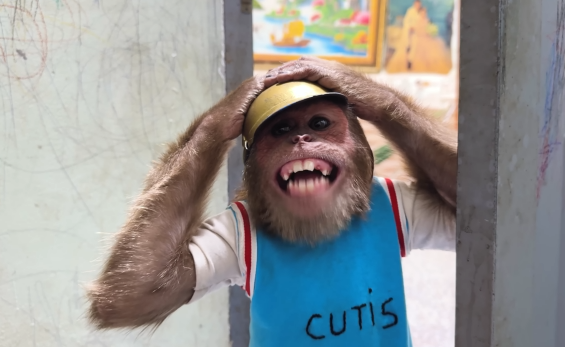
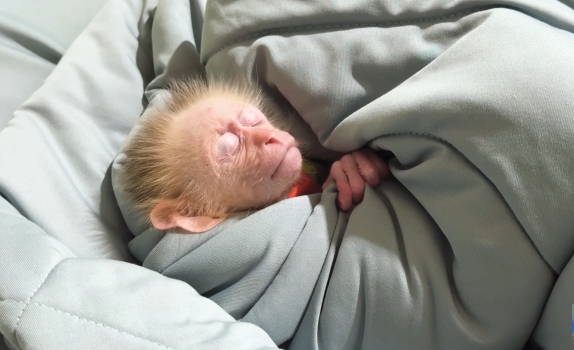
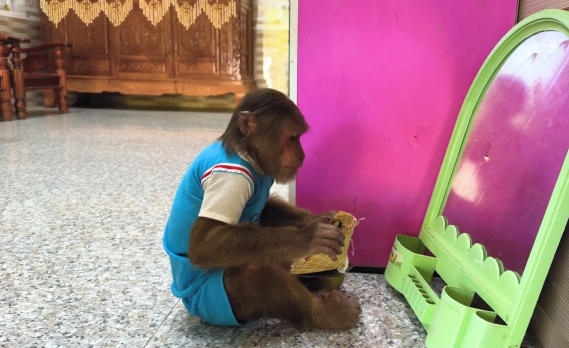

The morning sun had barely peeked over the green hills when CUTIS, the clever and curious farmer, made his usual rounds. His small farm was alive with sounds: chickens clucking, goats bleating, and birds singing in the nearby trees. But today, something was off. There was a strange stillness near the banana grove.
CUTIS walked slowly, his sharp eyes scanning every corner. As he reached the edge of the trees, he spotted her — Mama Monkey. She was lying on her side, her belly round with new life. She didn’t move. Not a twitch. Not even when a butterfly landed on her nose.
CUTIS’s heart skipped a beat. “Mama Monkey?” he called softly, stepping closer. Still, no movement.
He knelt beside her, careful not to startle her if she was only resting. But she was too still. Her eyes were half-closed, and her breath — was it there at all?
CUTIS gently touched her arm. Warm. That was good. He listened carefully, placing his ear near her nose. A faint breath. She was alive. But barely.
Panic rose in his chest. Mama Monkey was pregnant. What if something was wrong with her baby? What if she was hurt? CUTIS wasn’t a vet, but he knew one thing for sure — this wasn’t normal.
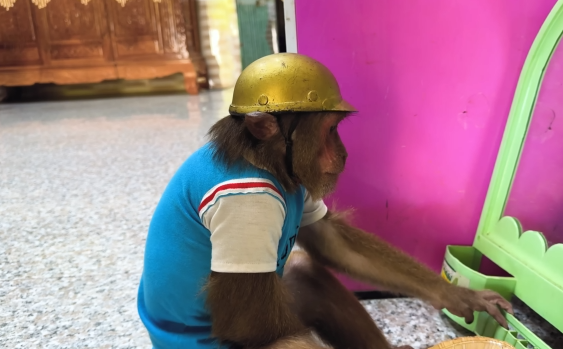
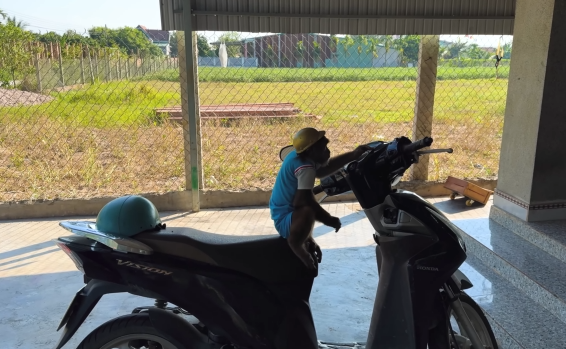

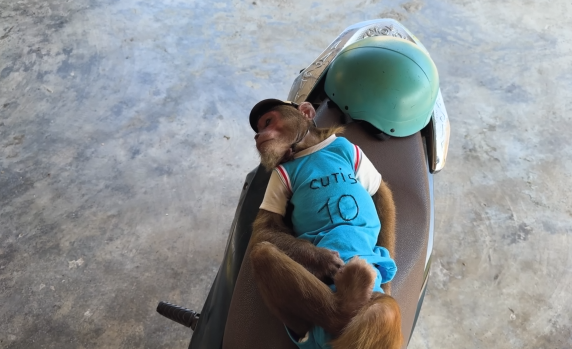
He jumped to his feet and whistled loud — a sharp, clear sound that rang across the trees. Within moments, his assistant, a teenager named Sokha, came running.
“She’s not moving,” CUTIS said quickly, pointing. “We need to help her. Maybe she’s sick. Or going into labor?”
Sokha looked worried too. “I’ll bring water. And some fruit. Maybe she’s just exhausted.”
They worked quickly. Sokha returned with a small bucket of clean water, while CUTIS laid out soft leaves for Mama Monkey to rest on. He splashed a little water gently on her face. At last, she blinked.
“Mama!” CUTIS smiled, relieved. “You scared me.”
But something still wasn’t right. Mama Monkey barely stirred, and she didn’t reach for the bananas they brought — her favorite.
CUTIS decided it was time to call the village animal healer, Grandma Pheak. She was old, wise, and had helped CUTIS with injured animals before.
An hour later, Grandma Pheak arrived, her walking stick tapping against the ground. She knelt beside Mama Monkey and placed her wrinkled hands gently on the monkey’s belly.
“She is close to giving birth,” she said softly. “But something is wrong. Her body is weak.”
CUTIS frowned. “Is it dangerous?”
“It could be. If she cannot push, the baby may not come out. We must help her now.”
The sun climbed higher, and the jungle heat grew heavy. CUTIS, Sokha, and Grandma Pheak worked together. They fanned Mama Monkey, fed her coconut water drop by drop, and whispered kind words.
And then, just as the afternoon light turned golden, Mama Monkey made a small sound — a groan, low and tired. Her belly moved. She was trying.
CUTIS knelt by her side and took her hand. “You can do it,” he said. “We’re here.”
The next hour was tense. Mama Monkey fought with all her strength. CUTIS and Grandma Pheak watched, guided, and helped. At last — a tiny cry!
A baby monkey, wet and wiggling, arrived into the world.
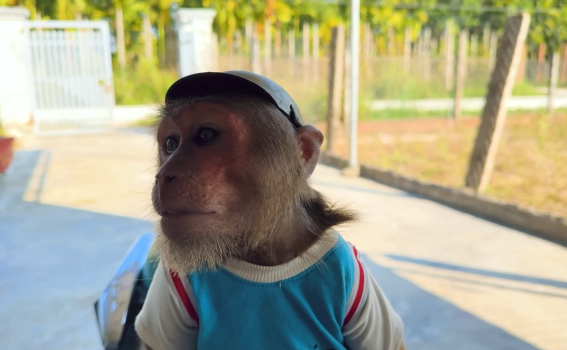
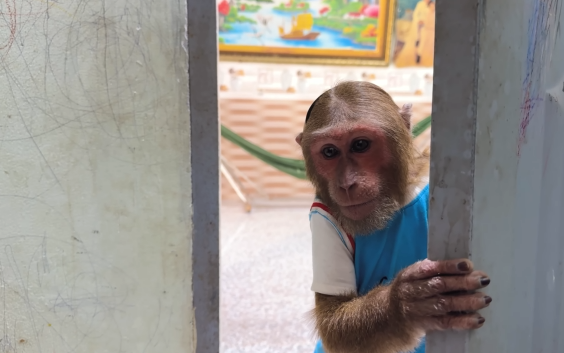
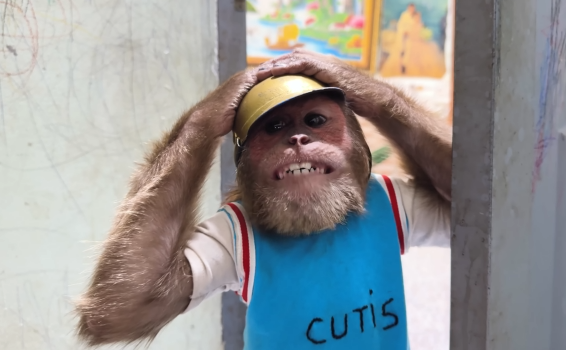
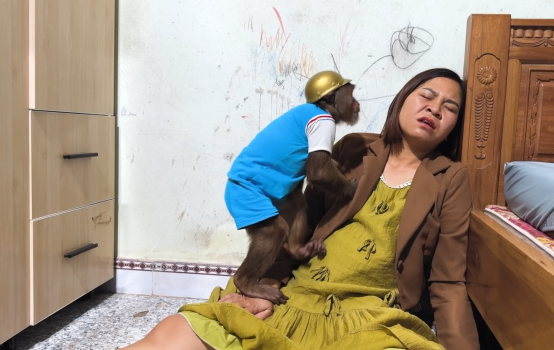
Cheers broke out. Sokha clapped, and even Grandma Pheak smiled wide.
Mama Monkey opened her eyes fully for the first time that day and saw her baby. With shaking arms, she pulled the little one close. CUTIS felt tears in his eyes.
“You did it, Mama,” he whispered. “You’re so strong.”
They named the baby “Chenda,” which means “thoughtful moon,” because she was born at twilight, and her quiet little face looked wise beyond her minutes.
CUTIS stayed close that night, setting up a small shelter near the grove to watch over the new mother and baby. Other monkeys gathered too, keeping respectful distance but clearly curious and joyful.
But CUTIS couldn’t shake the feeling of worry that still lingered. What if Mama Monkey had collapsed far from the farm? What if no one had found her in time?
He realized something important — these animals, these friends, needed more than food and shelter. They needed care. Real care. Medical help. Protection. A plan.
The next morning, he gathered the villagers.
“I want to build an animal care hut,” he said. “Somewhere safe for pregnant animals, sick ones, and babies. A place with clean water, shade, and supplies.”
The villagers agreed. They’d all seen how brave Mama Monkey had been — and how worried CUTIS was. So, they worked together, clearing space and bringing wood, bamboo, and palm leaves.
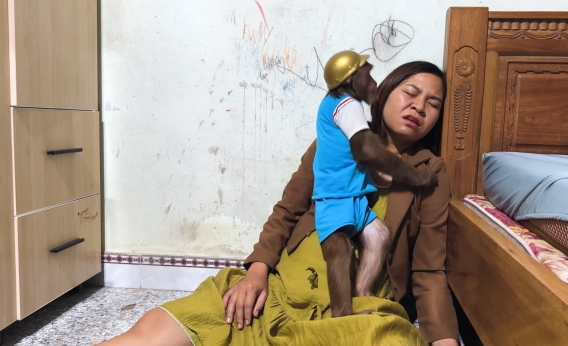
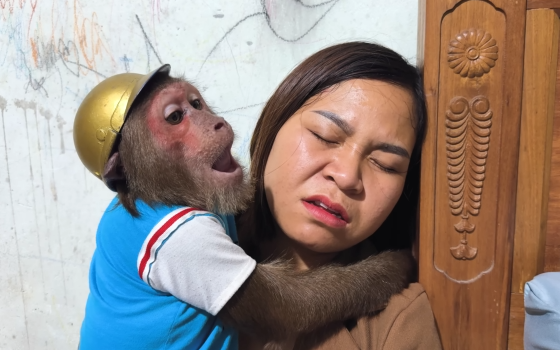
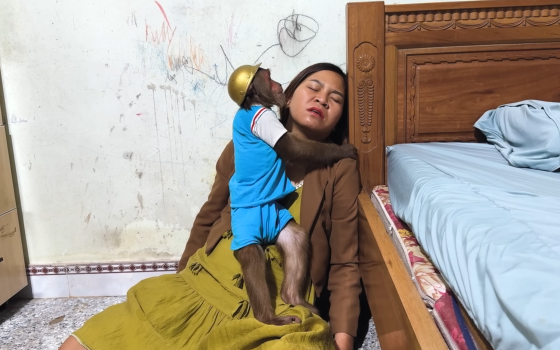
By the end of the week, the “Animal Corner” stood proudly near the edge of the farm. It had little hammocks for monkeys, a clean pool for bathing, and even a quiet room with straw beds.
Mama Monkey and baby Chenda were the first to rest there, healthy and safe. CUTIS visited them every morning, bringing fruits and watching the baby grow.
Every time he saw Chenda cling tightly to her mom’s chest, a smile lit up his face.
Sometimes, CUTIS would sit by the Animal Corner and tell the story to children visiting the farm.
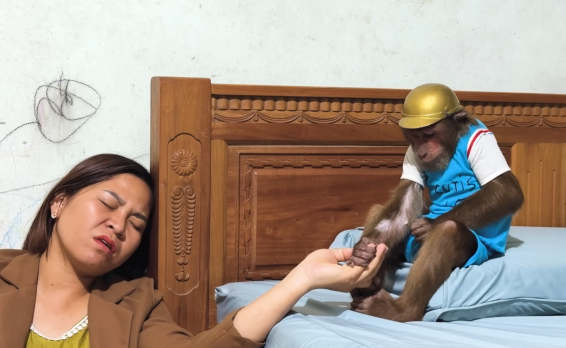
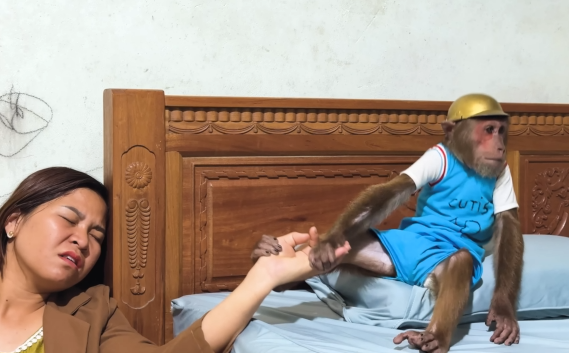
“One morning, I saw Mama Monkey lying still, and I thought it was a bad thing,” he’d say. “But it wasn’t just a bad thing — it was a warning. A message. That we need to pay attention. That animals need us, and we need them.”
The kids would listen wide-eyed, then run off to look at the animals with fresh eyes.
As for CUTIS, he never forgot that moment of fear when he thought Mama Monkey was gone. It reminded him that every life — no matter how small, furry, or quiet — was precious.
And sometimes, being worried is just the first step to doing something wonderful.
